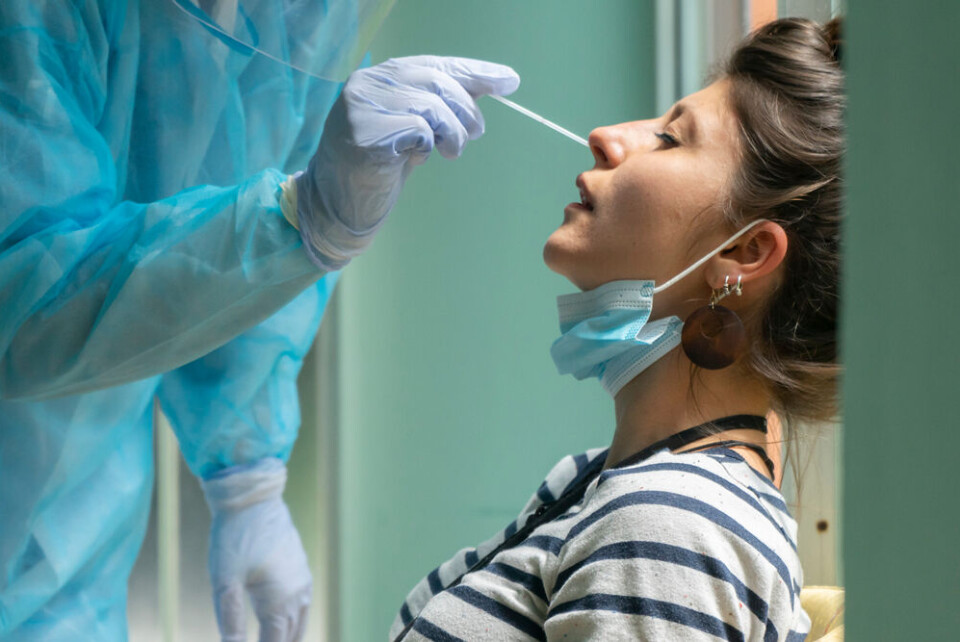-
The curious case of Good Friday: Why only some parts of France get the day off
Three French departments benefit from two extra public holidays
-
How long does it take to sell property in different areas of France? New study
Many major cities are showing signs of recovery when it comes to supply, demand, prices, and time to sell
-
Map: Car insurance costs rise in France - see the average in your region
Multiple studies show that costs are rising by around 5% year-on-year, with major differences by region and vehicle model
France ends pre-departure Covid test for all fully jabbed travellers
This includes people coming from the UK, the US, Australia and all other amber-list countries, who previously had to take a test within 48 hours of their trip

[Article updated February 15 at 09:45]
France has ended the need for fully vaccinated travellers coming from any country in the world to take a pre-departure Covid test.
The measure, announced by French Prime Minister Jean Castex yesterday, comes into effect today (February 12).
Previously, fully vaccinated travellers from amber-list countries, which includes the UK, the US and Australia, had to take a test within 48 hours of departure. See a full list of green- and amber-list countries at this link (under the heading: ‘La classification actuelle des pays’).
Travellers from green-list countries, which includes all EU countries and several others, such as New Zealand and Japan, were already free to enter France without taking a Covid test in advance.
Mr Castex said the change was down to the “new phase of the pandemic, characterised in most countries by the predominance of the Omicron variant and a high level of vaccination”.
“[Showing] proof of vaccination has once again become sufficient to enter France, whatever the country of departure,” he wrote in a press release.
The requirement of pre-departure Covid tests to enter France was introduced at the beginning of December 2021.
Non-fully vaccinated travellers
Non-fully vaccinated travellers will continue to need to present proof of a negative PCR test taken within 72 hours of departure or a negative antigen test taken within 48 hours of departure.
For those coming from green-list countries, there will no longer be the requirement to self-isolate on arrival, and they will not be subject to random testing controls.
For those coming from amber-list countries, they will still need to present an essential reason to enter France (mainly related to having the right to live or work in France, or for those transiting through the country).
They could also be randomly tested on arrival, and if they are positive they will have to self-isolate for 10 days (although there is a test-to-release option after seven days).
Who is considered fully vaccinated?
The definition of “fully vaccinated” differs in France depending on whether referring to international travel rules or domestic vaccine pass rules.
In the case of international travel, a person is considered fully vaccinated:
- 28 after receiving a first dose of the Janssen vaccine
- Seven days after receiving a second dose of the other vaccines recognised by the European Medicines Agency (Pfizer-BioNTech, Moderna, AstraZeneca, Novavax)
- Seven days after a booster dose of either Pfizer-BioNTech or Moderna, if they have already received two doses of a vaccine approved by the World Health Organization (WHO).
Additionally, a person aged 18 and over considered fully vaccinated as laid out in the criteria above, must also get a booster dose within nine months of their last required dose to remain “fully vaccinated”. People who have already received a booster dose are considered fully vaccinated.
It should be noted that a person considered fully vaccinated under France’s international travel rules may only be considered partially vaccinated under the domestic rules. This means they can enter the country, but may not be able to go to places such as restaurants, cafes, cinemas, etc. where the vaccine pass requirement is in place.
People who have had a booster Covid dose are in almost every situation considered fully vaccinated under both definitions.
Read more about the difference between France’s domestic and international definitions of fully vaccinated in our article here: ‘Fully vaccinated’: does meaning vary in France depending on context?
What are the travel requirements between France and the UK now?
UK to France:
The UK is classified as amber by France.
If you are fully vaccinated, you will need to present proof of that (as defined above) and also fill out a certificate attesting to not having Covid symptoms.
If you are not fully vaccinated, you will need to give an essential reason for your journey, proof of a negative Covid test taken within 48 hours of departure, fill out a certificate attesting to not having Covid symptoms, and agree to be randomly tested on arrival.
Children aged 12 and under are exempt from this.
France to UK:
Travellers who are fully vaccinated with an approved vaccine only need to fill out a passenger locator form in the 48 hours before arriving in the country. There are no further requirements.
Travellers who are not considered fully vaccinated need to take a pre-departure test and a PCR test on or before day two after entering the country.
Read more: UK ends Covid tests for fully vaccinated arrivals from today
Related stories
Can double-jabbed UK residents who have had Covid travel to France?
Strikes, jams, new flights, Covid tests: Nine France travel updates
























